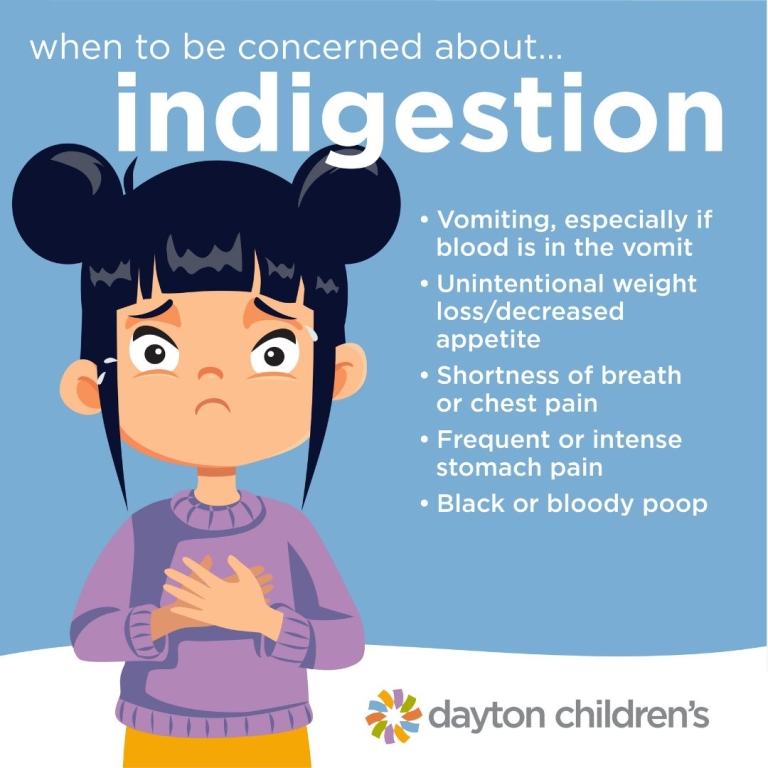12/13/23 blog post
when to be concerned about indigestion

in this article:
- What are the symptoms of indigestion?
- What causes indigestion?
- When should I seek medical attention for my child?
Indigestion is a common digestive problem that often happens after a person eats too much or too fast. It can also happen when a person eats something that doesn't agree with them, like spicy or fatty foods.
According to KidsHealth, heartburn or gastroesophageal reflux (GER) can happen along with indigestion. When this occurs, acid splashes from the stomach into the esophagus and can leave a sour or bitter taste in the mouth or cause an uncomfortable feeling in the chest. For others, it can cause nausea, upper abdominal pain or vomiting.
To help us understand when indigestion is a cause for concern, we asked pediatric gastroenterologist, April Mathews, MD, to share her advice.
what are the symptoms of indigestion?
When indigestion occurs, it can be accompanied by a range of uncomfortable symptoms, including:
- Pain or burning in the upper belly
- Nausea
- Bloating
- Lots of burping
- Heartburn
- Bad taste in the back of the mouth
what causes indigestion?
Eating too much or too fast are the top causes of indigestion in children, unless your child is less than a year old. It can also happen more often if a child is under a lot of stress, has had a recent infection or has poor sleep habits. Many children notice worsened symptoms in the morning or with certain foods such as acidic foods (citrus, tomatoes, etc.), fatty/greasy foods and spicy foods. In more severe cases, indigestion can be related to stomach problems like gastritis or an ulcer.
when should I seek medical attention for my child?
Most symptoms of indigestion are short-lived and can be managed with lifestyle, diet changes or over-the-counter medications (such as Tums or Maalox). If your child's indigestion goes away quickly and the symptoms are mild, it's probably nothing to worry about. However, if your child experiences persistent, severe indigestion or any of the following symptoms along with indigestion, contact their primary care provider for guidance.
- Vomiting, especially if blood is in the vomit
- Unintentional weight loss/ decreased appetite
- Shortness of breath or chest pain
- Frequent or intense stomach pain
- Black or bloody poop
Your child's primary care provider will guide you on the next steps. If it is recommended that your child be seen by a specialist in gastroenterology, you can schedule an appointment online.





